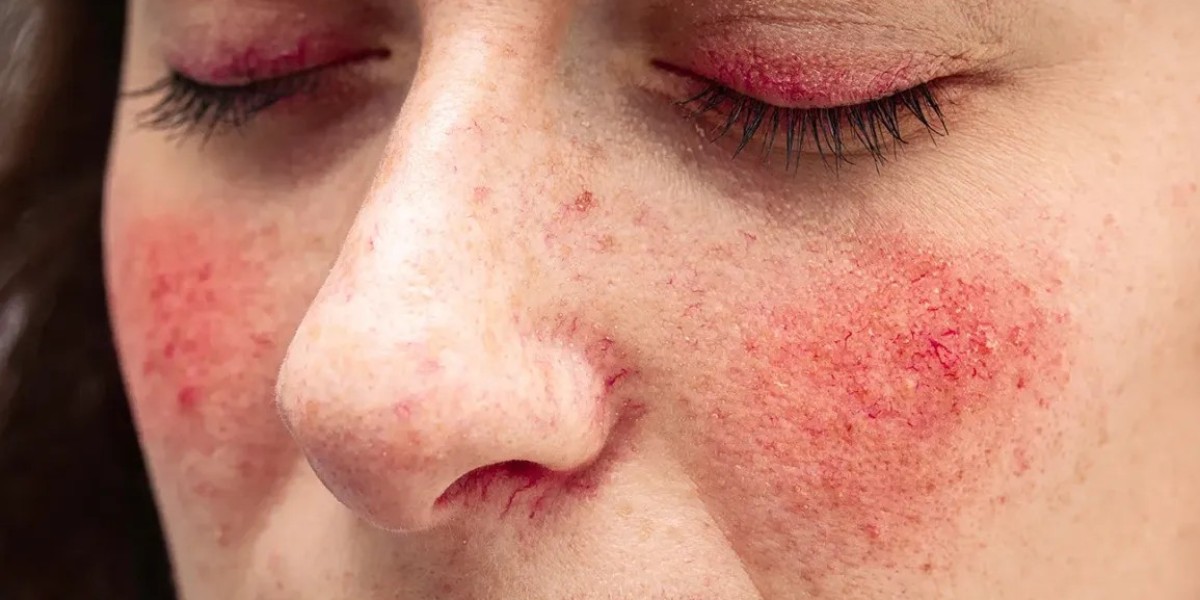Introduction
Rosacea is a chronic skin condition characterized by facial redness, visible blood vessels, and sometimes, even acne-like breakouts. It often begins subtly, with sporadic flushing, and gradually progresses into more persistent symptoms. While there's no known cure for rosacea, effective management strategies can greatly improve its symptoms and enhance the quality of life for those affected. In this article, we'll explore a range of tips and tricks to help master the management of rosacea. Rosacea treatment in Abu Dhabi can help.
1. Understand Your Triggers
Identifying and avoiding triggers is one of the fundamental aspects of managing rosacea. Common triggers include spicy foods, alcohol, hot beverages, extreme temperatures, sunlight, stress, and certain skincare products. Keeping a diary to record flare-ups and potential triggers can help you pinpoint what worsens your symptoms and enable you to make informed lifestyle choices.
2. Gentle Skincare Routine
A gentle skincare routine is essential for managing rosacea. Opt for mild, fragrance-free products designed for sensitive skin. Avoid harsh exfoliants, abrasive scrubs, and astringents that can aggravate the condition. Instead, cleanse your face with lukewarm water and a gentle cleanser, and always pat your skin dry, avoiding rubbing.
3. Moisturize Regularly
Maintaining proper hydration is crucial to managing rosacea. Choose a non-comedogenic, hypoallergenic moisturizer to keep your skin hydrated without clogging pores. Look for ingredients like ceramides and hyaluronic acid that can help strengthen the skin's barrier and retain moisture.
4. Sun Protection
Sun exposure is a common trigger for rosacea flare-ups. Protect your skin from the sun's harmful rays by using a broad-spectrum sunscreen with at least SPF 30 daily. Additionally, consider wearing a wide-brimmed hat and sunglasses to shield your face from direct sunlight.
5. Medical Treatment Options
Consulting a dermatologist is paramount for effective rosacea management. Depending on the severity of your condition, your dermatologist may recommend topical creams, oral medications, or both. Topical treatments may include antibiotics, azelaic acid, or prescription-strength creams to reduce redness and inflammation.
6. Laser and Light Therapies
For visible blood vessels and persistent redness, laser and light therapies can be effective. Intense Pulsed Light (IPL) and laser treatments can target and minimize blood vessels, reducing redness and improving overall skin tone.
7. Makeup Tips
If you're looking to camouflage redness, choose makeup products specially formulated for sensitive skin. Use a green-tinted primer to counteract redness before applying foundation. Avoid heavy, pore-clogging makeup and opt for mineral-based products that won't exacerbate your symptoms.
8. Stress Management
Stress is a well-known trigger for rosacea flare-ups. Incorporate stress-relieving techniques such as meditation, deep breathing, yoga, or regular exercise into your routine. Finding healthy ways to manage stress can significantly improve your skin's condition.
9. Diet Modifications
While individual triggers can vary, some people with rosacea find relief by making dietary adjustments. Reducing your intake of spicy foods, alcohol, and caffeine may help minimize flare-ups. Incorporating anti-inflammatory foods rich in antioxidants, such as fruits, vegetables, and fish, could also positively impact your skin.
10. Patience and Consistency
Managing rosacea is a journey that requires patience and consistency. It may take time to find the right combination of treatments, lifestyle adjustments, and skincare products that work best for your skin. Stay committed to your routine and track your progress to make informed decisions about what suits your skin's needs.
Conclusion
Mastering rosacea management involves a holistic approach that addresses triggers, skincare routines, medical treatments, and lifestyle modifications. By understanding your skin's unique needs and diligently following these tips and tricks, you can effectively control rosacea symptoms, boost your confidence, and enjoy healthier, more radiant skin. Remember, working closely with a dermatologist is key to developing a personalized plan that meets your specific requirements.



